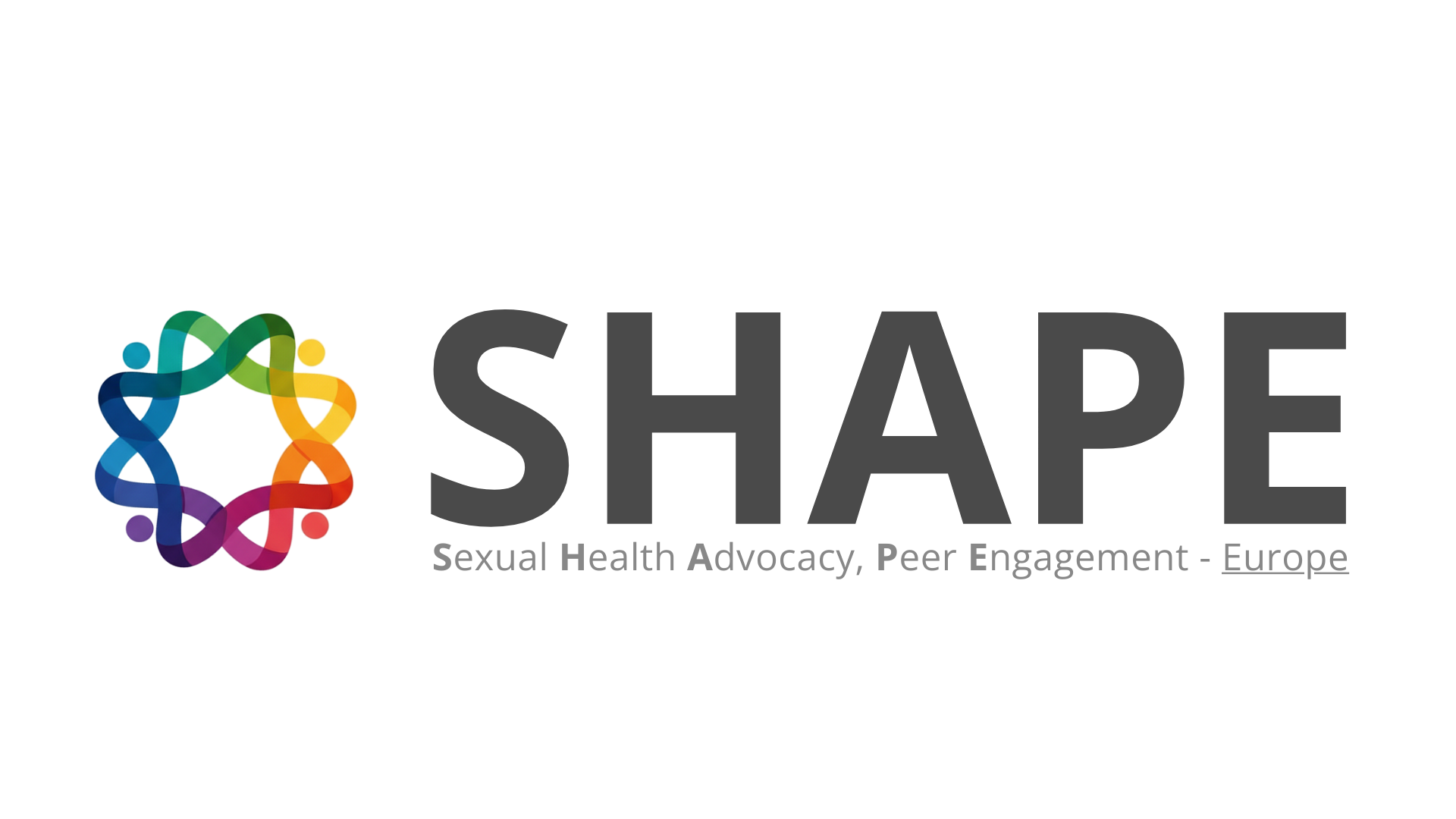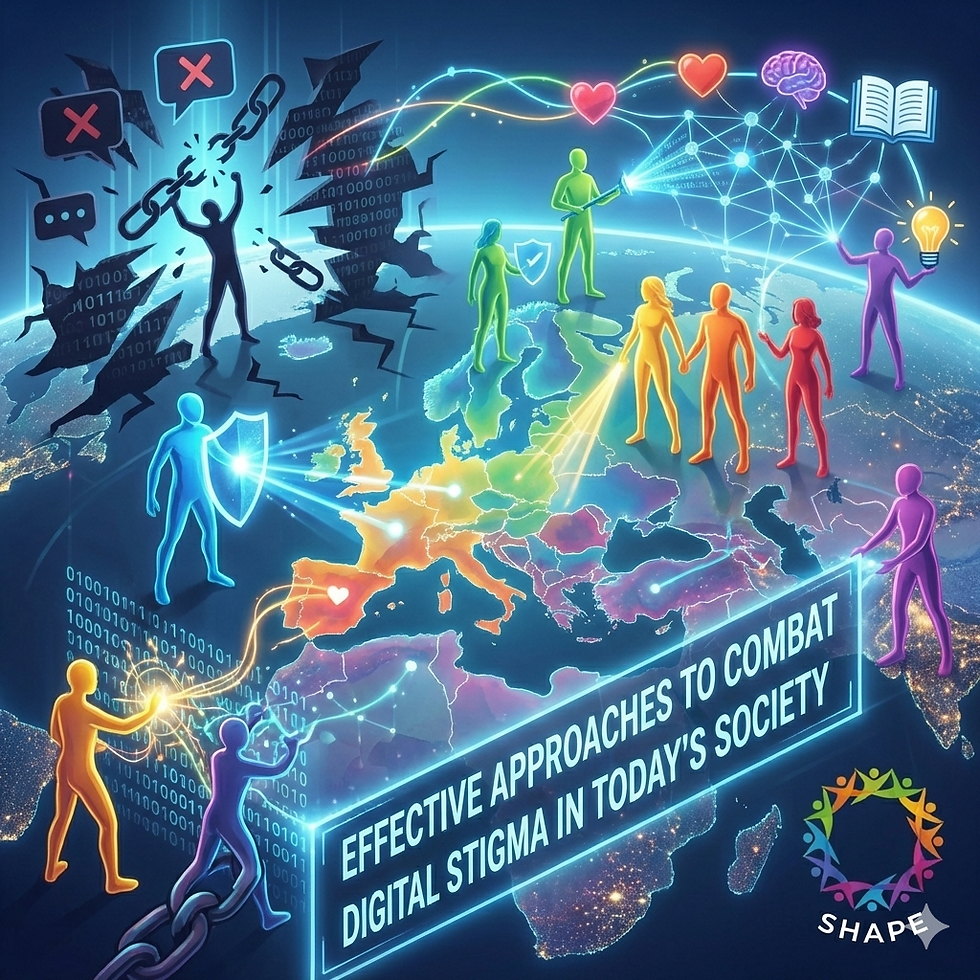Building a Cross-European Network for Sexual Health Advocacy
- Oct 1, 2025
- 4 min read
Updated: Jan 17
The first step in empowering a community dedicated to sexual health is to create a strong network throughout Europe. This network should consist of individuals, organizations, and advocates who genuinely care about sexual health. For instance, organizations like Sexuality Education Network in the UK and EUSAF in Germany can join forces, sharing their unique insights and approaches. By connecting diverse voices, we build a powerful coalition capable of increasing our collective impact.
A cross-European network allows for the exchange of experiences, challenges, and successes. Research indicates that networking can enhance an organization's effectiveness by 25%. Such collaboration provides a platform for learning from each other and launching initiatives that promote sexual health. This network can also serve as a valuable resource for those seeking guidance on effective practices and innovative solutions to common issues.
Creating a Digital Platform for Community Voices
In today’s digital world, having a strong online presence is crucial for any advocacy effort. A dedicated digital platform can act as a central hub for community voices, peer-to-peer education, and connections between advocates and professionals. This platform should be user-friendly and accessible, enabling individuals to share their stories, resources, and insights effortlessly.
The digital platform can host a variety of content, from articles to podcasts that focus on sexual health topics. For instance, hosting a monthly webinar featuring experts can help increase awareness about challenges like teenage pregnancy, which affects approximately 13% of young women in Europe. By amplifying community voices, we ensure that varied perspectives are included in the discussion. Additionally, the platform can facilitate peer-to-peer learning, allowing individuals to share their experiences and knowledge with one another.
Organizing Learning Exchanges and Workshops
To foster collaboration and knowledge sharing, organizing learning exchanges and workshops stands out as essential. These events can unite individuals from various backgrounds and regions, allowing for discussion on best practices, resource sharing, and fresh strategies for advocacy.
Workshops could cover topics like effective communication strategies, which are essential for engaging the community. Research shows that 70% of participants in skills workshops felt more confident advocating. Learning exchanges can also feature mentorship opportunities, connecting seasoned advocates with newcomers eager to make a difference in sexual health advocacy.
Mutual Support for Advocacy and Government Engagement
Navigating the intricate landscape of policy and advocacy can prove daunting, especially for those new to the field. By fostering mutual support among network members, we can guide one another through these challenges more effectively.
Support can manifest in various forms, such as sharing resources, strategies, or emotional encouragement during tough times. Working together strengthens our collective voice, allowing us to influence government policies more effectively. Collaborative efforts can lead to enhanced advocacy outcomes, ultimately resulting in improved policies and resources for sexual health.
Sharing Best Practices and Resources
One critical advantage of a cross-European network is the capacity to share best practices and resources. By identifying service and initiative gaps, we can collectively devise bold, community-centered solutions.
Regularly exchanging resources, such as toolkits, research findings, and case studies, can help network members remain informed and inspired. This collaborative approach bolsters individual efforts and magnifies the overall impact of the network. For example, sharing case studies of organizations that successfully reduced sexually transmitted infections (STIs) in their regions can offer actionable insights.
Identifying Gaps and Filling Them
As we build this cross-European network, it is vital to remain vigilant in pinpointing gaps in sexual health education and resources. Conducting assessments and gathering feedback from community members can help us find areas deserving our attention and action.
Once these gaps are identified, our network can mobilize to create targeted initiatives addressing these needs. This may involve developing new educational materials, launching awareness campaigns, or advocating for policy changes. For instance, a survey revealed that 60% of young people felt they lacked adequate sexual health education in schools. By being proactive, we can ensure our approaches respond to the ever-changing landscape of sexual health.
Moving Forward Together
Empowering a cross-European community for sexual health advocacy and education is a necessary undertaking that calls for collaboration, innovation, and mutual support. By building a strong network, creating a digital platform, organizing learning exchanges, and sharing best practices, we can amplify our collective impact and catalyze meaningful change.
As we advance, staying dedicated to our mutual goals is essential. Together, we can shape a future where sexual health is prioritized, ensuring that individuals have access to the education and resources they need to lead healthier lives.
The Importance of Collaboration in Sexual Health Advocacy
Collaboration is at the heart of effective sexual health advocacy. When we work together, we can pool our resources and knowledge. This unity allows us to tackle complex issues more efficiently. By sharing our experiences, we can learn from one another and implement successful strategies across different regions.
Moreover, collaboration fosters a sense of community. It reminds us that we are not alone in our efforts. We can support each other through challenges and celebrate our successes together. This sense of belonging can be incredibly motivating, driving us to continue our work even when faced with obstacles.
Engaging the Community
Engaging the community is crucial for the success of our initiatives. We must ensure that the voices of those we aim to help are heard. This means actively seeking input from community members and incorporating their feedback into our programs.
Community engagement can take many forms. It can involve surveys, focus groups, or public forums where individuals can share their thoughts and experiences. By listening to the community, we can better understand their needs and tailor our efforts accordingly.
Conclusion
In conclusion, the journey toward a robust cross-European network for sexual health advocacy is one that requires dedication and collaboration. By focusing on building connections, creating accessible platforms, and engaging with the community, we can make significant strides in promoting sexual health across Europe.
Together, we can challenge stigmas, bridge education gaps, and empower individuals to take charge of their sexual health. Let us move forward with determination and a shared vision for a healthier future.




